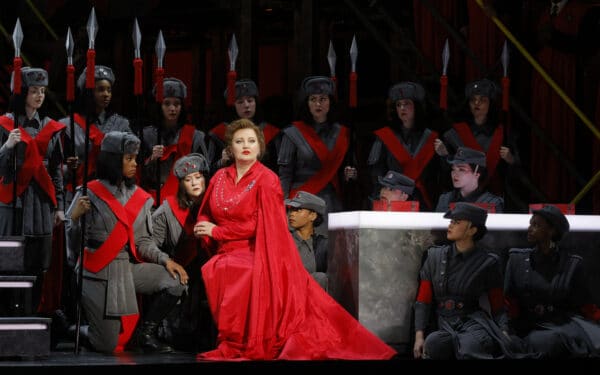My favourite book is a Victorian poem, perhaps with the exception of Tennyson’s In Memoriam the most famous of its day, now almost completely forgotten. It is a book about a book named after a book, twice the length of Paradise Lost, but it takes as its subject not a high-minded epic theme but a squalid murder in the Rome of the Popes. Robert Browning’s The Ring and the Book was published in four installments in 1868-9, but he had been mulling over the narrative since 1860, when he bought in a Florence flea market the old Yellow Book itself, an account of the trial and execution of Count Guido Franceschini for the murder of his wife and her parents in 1697. Browning tried to pass it on as source material to other poets, including Tennyson, but the gruesome fascination of the story and its Italian setting seemed better suited to his own genius, with stunning results.
Browning does for the narrative poem in The Ring and the Book what Wagner was doing at the same time in the Ring Cycle: he allows the ugly its voice, even the tedious, so that the whole story can be told. Chesterton called it the epic of listening, the epic of free speech, in which the poet takes the partial accounts of all the participants and gives them voice. Simply put, the plot is about a domestic murder: the selfish count marries for money, considers himself deceived, mistreats his virtuous wife until she runs away with a priest, and then in rage kills her and her family when he learns she is pregnant, in fact with his own child. He is then tried and sentenced to death. It is told by means of nine dramatic monologues, representing in turn the various opinions of the Roman crowd, the stories of the principal protagonists (count, wife, priest) the notoriously tedious prognostications of the two lawyers in the case, and at the end the majestic monologue of the Pope, Innocent XII, who against expectations refuses to spare Guido from the scaffold.
All this is carried along for 21,000 lines in Browning’s extraordinary, rugged, staccato verse with its enthusiasm for the uncouth and uproarious. Here is a taste of one of the lawyers talking about his opponent:
“He’s a lean gutted hectic rascal, fine
as pale-haired red eyed ferret which pretends
‘tis Ermine, pure soft snow from tail to snout.”
More sonorous are the concluding words of the Pope, having decided the murderer must die:
“So may the truth be flashed out by one blow,
and Guido see, one instant, and be saved. Else I avert my face,
nor follow him, into that sad obscure sequestered state
where God unmakes but to remake the soul.”
Browning is unique in this, creating the taste by which he came to be appreciated through sheer force and energy of language.
Browning mania was a characteristic Victorian enthusiasm: Browning Societies flourished, Edward VII’s surgeon wrote a tour guide to the sites described in the poem, and Everyman’s Library published not only the poem but also the old Yellow Book, which remained in print well into the 1920s. Now he is hardly read, a sad loss of both pleasure and cultural memory to readers of poetry: he is a great poet of the modern age, of our time, the precursor of Eliot in The Waste Land. He deserves to be read again.
Robin Ward is a priest of the Church of England and the Principal of St Stephen’s House, Oxford, a theological college in England.



